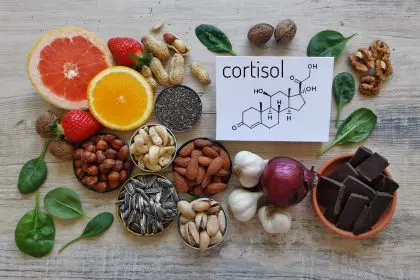The role of protein in human health extends far beyond basic nutrition. Recent research indicates that protein serves as a fundamental building block for every cell in the body, supporting crucial functions from hormone production to immune system maintenance. The American Journal of Clinical Nutrition reports that adequate protein intake becomes increasingly important as we age, with research showing a direct correlation between protein consumption and muscle preservation.
The science of protein utilization
Modern nutritional science reveals that protein absorption and utilization follow specific patterns within the body. Research indicates that the body can effectively utilize between 15 to 25 grams of protein for muscle building during each meal, with any excess being converted to energy or stored. This understanding has revolutionized approaches to protein consumption, emphasizing the importance of strategic timing throughout the day.
Determining individual needs
Protein requirements vary significantly based on individual factors, including activity level, age, and overall health status. The National Institutes of Health establishes a baseline recommendation of 0.36 grams per pound of body weight daily, though research indicates this may be insufficient for optimal health and muscle maintenance. Current studies suggest that active individuals should consume between 0.75 to 1 gram of protein per pound of healthy body weight for optimal results.
Scientific evidence supports the importance of protein distribution throughout the day. Research published in the International Journal of Sport Nutrition and Exercise Metabolism demonstrates that spreading protein intake across multiple meals optimizes muscle protein synthesis and recovery. This approach proves particularly beneficial for individuals engaging in regular physical activity.
Breakfast protein optimization
Morning protein consumption plays a crucial role in establishing metabolic patterns for the day. Research shows that protein-rich breakfasts can help regulate appetite and maintain stable blood sugar levels. Popular options include omelets with avocado and pea protein yogurt, providing approximately 22 grams of protein, or egg muffins with whole-grain toast, delivering similar protein content while offering complex carbohydrates for sustained energy.
Lunch presents another opportunity for strategic protein intake. A well-designed lunch including grilled chicken salad delivers approximately 24 grams of protein, while protein smoothies can provide up to 27 grams. These options help maintain muscle protein synthesis throughout the day while supporting afternoon energy levels and recovery from morning activities.
Evening protein considerations
Dinner choices significantly impact overnight recovery and muscle maintenance. Research indicates that evening protein consumption supports overnight muscle protein synthesis. Options such as salmon with vegetables provide approximately 25 grams of protein, while plant-based alternatives like bean bowls offer 22.5 grams while providing additional fiber and micronutrients.
Strategic snacking plays a vital role in meeting daily protein requirements. Current nutritional research supports incorporating protein-rich snacks between meals to maintain optimal amino acid levels throughout the day. Options such as cottage cheese provide 25 grams of protein, while nuts like pistachios offer 6 grams along with healthy fats and minerals.
Long-term health implications
Research published in the American Journal of Clinical Nutrition demonstrates that maintaining adequate protein intake throughout life supports multiple health outcomes. Studies show correlations between proper protein consumption and improved bone density, better wound healing, and enhanced immune function.
Success in meeting protein requirements depends on practical planning and implementation. Research indicates that individuals who plan their meals in advance are more likely to meet their nutritional goals. Creating structured meal plans while maintaining flexibility for individual preferences and schedules promotes long-term adherence to protein intake goals.
Monitoring and adjustment
Regular assessment of protein intake and its effects on health and performance allows for necessary adjustments. Studies show that individuals who monitor their nutritional intake and adjust based on results achieve better outcomes in both health and performance measures.
Emerging research continues to reveal new insights into protein utilization and optimal intake patterns. Current studies explore the relationships between protein timing, source quality, and individual genetic factors in determining optimal protein consumption strategies.

















